Over 67 000 apply for 5 500 police trainee jobs in 24 hours
Originally built a few years before World War II for luggage storage, the underground bunker was repurposed after war broke out.
French railway historian Clive Lamming said its 1939 overhaul was to provide “a place to retreat in case of an air attack” so staff could keep the trains running east towards Germany.
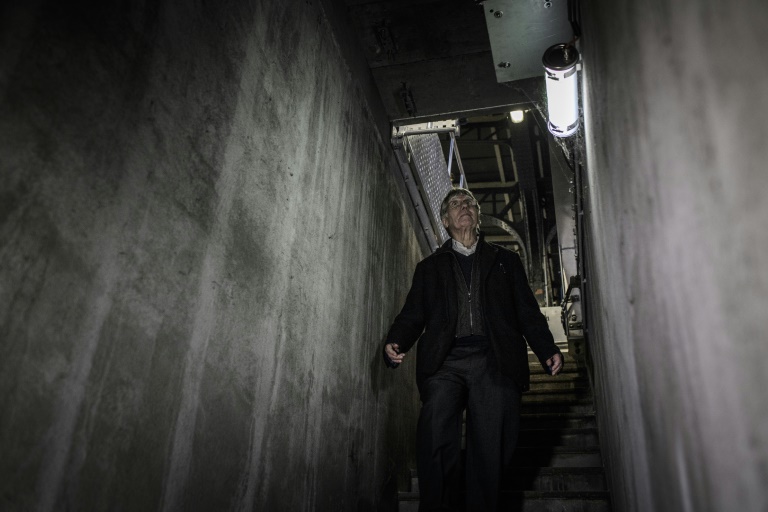
French railway historian Clive Lamming says the bunker was overhauled in 1939 to provide shelter for rail workers in case of an air attack
Leading this AFP reporter through a concrete air lock and heavy door to the shelter, he said: “The concern was gas.”
“We remembered World War I — a perfectly airtight place was needed,” he added.
With its three-metre (10-foot) thick concrete ceiling, it was designed for about 70 people to be able to take refuge in the small rooms of the 120-square-metre (1,300-square-foot) shelter.
But, in the end, the bunker never really saw any action — Paris was largely spared from air attacks during WWII, and there was little danger of poison gas.
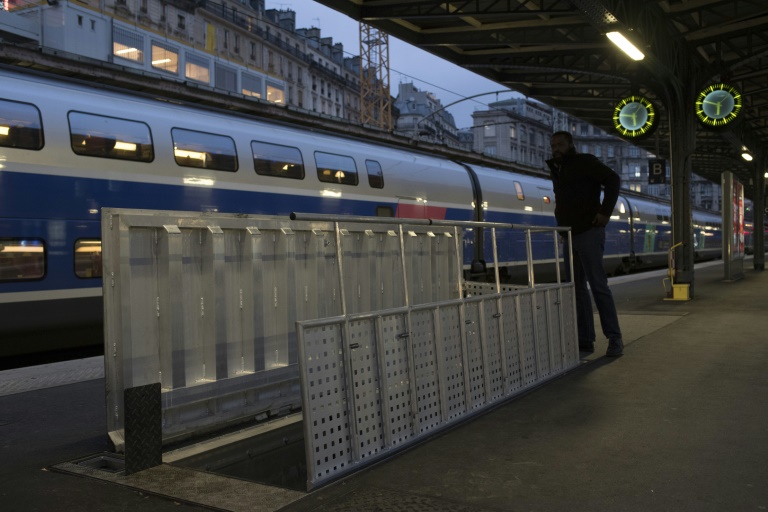
A trap door on the train platform at Gare de l’Est station in central Paris leads down into a bunker from World War II
After France’s defeat in 1940 and Nazi occupation, the bunker was requisitioned by the Germans and traces of their presence remain, including a sign that reads “Notausgang” (emergency exit).
“In my opinion, it hasn’t been finished,” said Lamming, as a high-speed TGV train loudly rumbled overhead.
– ‘Sleeping Beauty’ –
Today, few of the thousands of travellers passing through the busy central Paris station will likely have any inkling of the time capsule under their feet.
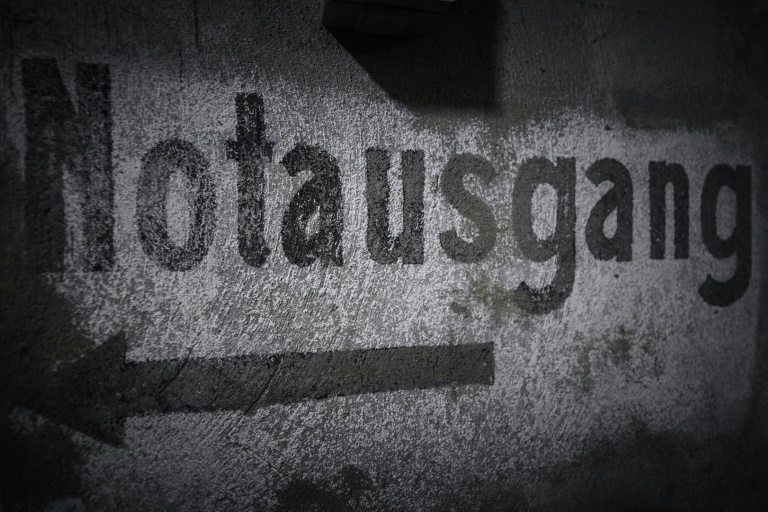
Remnants of the occupying Nazi German forces having taken over the bunker remain in the shelter below Paris’s Gare de l’Est train station
Just a discreet trapdoor on the platform opens up to reveal a staircase leading down to the bunker, which is not publicly accessible except on certain occasions.
“For 80 years, it has been ‘Sleeping Beauty’,” Lamming said. “Everything is in mint condition from 1939.”
Entering the machine room is like stepping back into the 1930s, with the old contraptions, dials, copper piping and Bakelite handles only in need of a good polish.
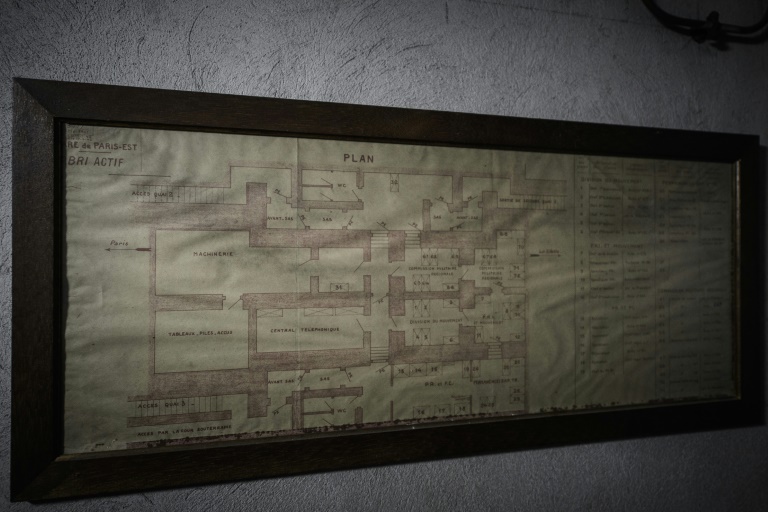
The 120-square-metre (1,300-square-foot) shelter was designed for about 70 people to be able to shelter in its small rooms
The room also has two bicycles. If the power went out, ventilation would have been provided by batteries — if they failed, anyone sheltering in the bunker was to hop on the bikes and pedal to circulate fresh air.
Other rooms also feel frozen in time, like the telephone exchange with its tangle of wires, but most are more spartan, furnished with a few period tables and chairs where staff could have directed the train traffic above.
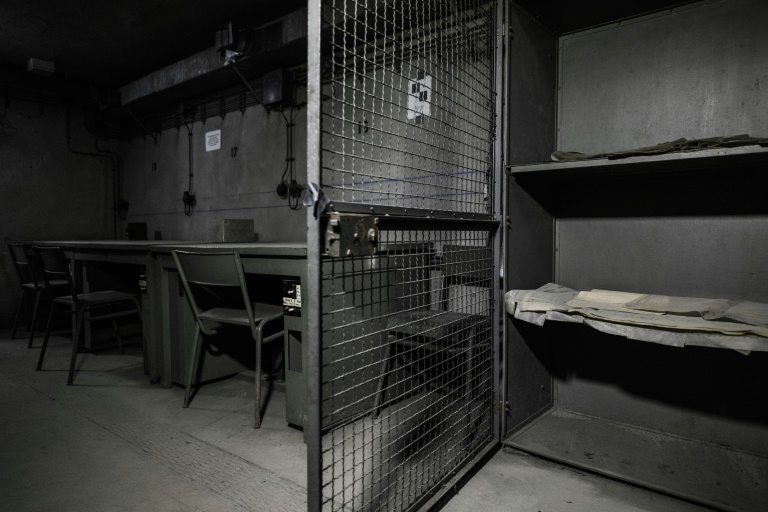
Desks in a telecommunications room of a World War II bunker located under the Gare de l’Est railway station in Paris
The shelter was designed to host 72 workstations, and some yellowing documents remain. There is even a bed.
Post-war, with its purpose now passed, it gradually took on an almost mythic status among employees of SNCF, France’s national train operator.
“The aim is to preserve it,” especially as the shelters built in other stations at the time have all disappeared, said the SNCF branch in charge of stations.
Chances to visit are rare as the bunker was not built for large crowds but it does open up for annual Heritage Days events.